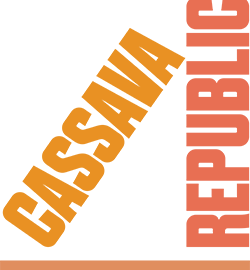Beginning the conversation about “Who Lives In Your Head” which we will have in many ways, across multiple formats is Ayesha Harruna Attah for whom Cassava Republic Press is home. Her novel, The Hundred Wells of Salaga continues to delight readers across the world and inspire conversations about what we know and what has been lost in the seas that carried us to new places where we forged new cultures. It also birthed her foray into the Young Adult world in The Deep Blue Between, a beautiful continuation of a story we never wanted to end.
Over 10 questions, we ask “Who Lives in Your Head” and step into Ayesha Harruna Attah’s world to discover her inspirations across writing, film, music and life.
1.) Who was the person that first connected you with the possibility of creating in the way that you do?
When I was growing up, my parents were journalists and creatives. They had a magazine called Imagine that was way ahead of its time. Seeing them create with passion left a long lasting impression on me. Even though we lived a country that then seemed to have no use for them, seeing them work gave me permission to be a writer much later on.
2.) What are the sounds that fill your head space?
M.anifest, a really skilled MC from Ghana; D’Angelo, who bridges gaps; Mayra Andrade, a deep ancient voice from Cape Verde; lots of Bossa Nova, like Baden Powell.
3.) Is there an artist(s) or creative(s) whose work you think perfectly charts your relationship with the world?
Panashe Chigumadzi does in essay form what I think my relationship with the world is. Her book These Bones Will Rise Again, especially. When she writes about Nehanda being resurrected generation after generation through different mediums – it feels like I am one of those mediums – communing with spirits that still want their stories told.
4.) Do you believe in the muse? If so, whose life would you like to/have liked to explore further and bring to life through your work?
I don’t know if I believe in the muse – but I do believe our forebears speak back to us. I do not believe in waiting for the muse. I believe in showing up everyday and putting in time. Sometimes genius strikes; sometimes, it’s not so great. But if you show up everyday, there are more chances of meeting the genie. There are two women who lived a long time ago I’d love to explore further. One of them is Amina of Zazzau, the other is Nana Asma’u.
5.) What is your relationship with cinema and what cinematographic contribution do you recommend that everyone would watch and why?
I love cinema – and often go to it to be entertained. Many times, I find myself inspired for my own writing. I am loving the cinematic work of Michaela Coel, Blitz Balawule, and Chloe Zhao. All young people changing the face behind cinema.
6.) When you are happy, where do you like to go?
To see the ocean in the Senegalese village I live in. I love that it’s the same water that touches about half of the African continent and links us to our Diaspora.
7.) What piece of art (music, book, song, film) speaks to your joy?
Like a Mule Bringing Ice Cream to the Sun by Sarah Ladipo Manyika. Her protagonist Morayo Da Silva was a great companion to me, especially in 2020, when we seemed on the bring of an apocalypse. Her way of finding joy in her books, her vintage Porsche, her toe rings, her colorful past – it’s such a heartwarming book.
8.) Who right now is creating in a way that leaves you in awe and why?
Nii Ayikwei Parkes is the author of a detective novel, Tail of the Blue Bird, that is so deliciously woven. He writes poetry, children’s books, and is a performer. Akwaeke Emezi, similarly, bends genres with their work. I’m in awe of people who can do it all.
9.) What stories do you think we are not telling enough of?
Love stories, complex stories, more joyful stories. We need more African comedy.
10.) Who from the past do you think we must all consume? Musician, writer, intellectual, singer etc
I’ve learned a lot about African history reading Cheikh Anta Diop. He did groundbreaking scientific and linguistic work on the origin of his people, the Wolof, and talked about a continuity in the African story, that has inspired a lot of my own work. Everyone should read him!
Ayesha Harruna Attah lives in Senegal and loves cooking, green tea ice cream, and staring at the ocean. She is the author of four novels: Harmattan Rain (Per Ankh Publishers), nominated for the 2010 Commonwealth Writers’ Prize; Saturday’s Shadows (World Editions), shortlisted for the Kwani? Manuscript Project in 2013; The Hundred Wells of Salaga (Cassava Republic Press, UK; Other Press, US), finalist for the 2020 William Saroyan Prize; and a newly released young adult novel, The Deep Blue Between (Pushkin Children’s).
We continue to ask “Who Lives in Your Head” across the rest of the week, so come back again to discover new names, faces and maybe even places.
